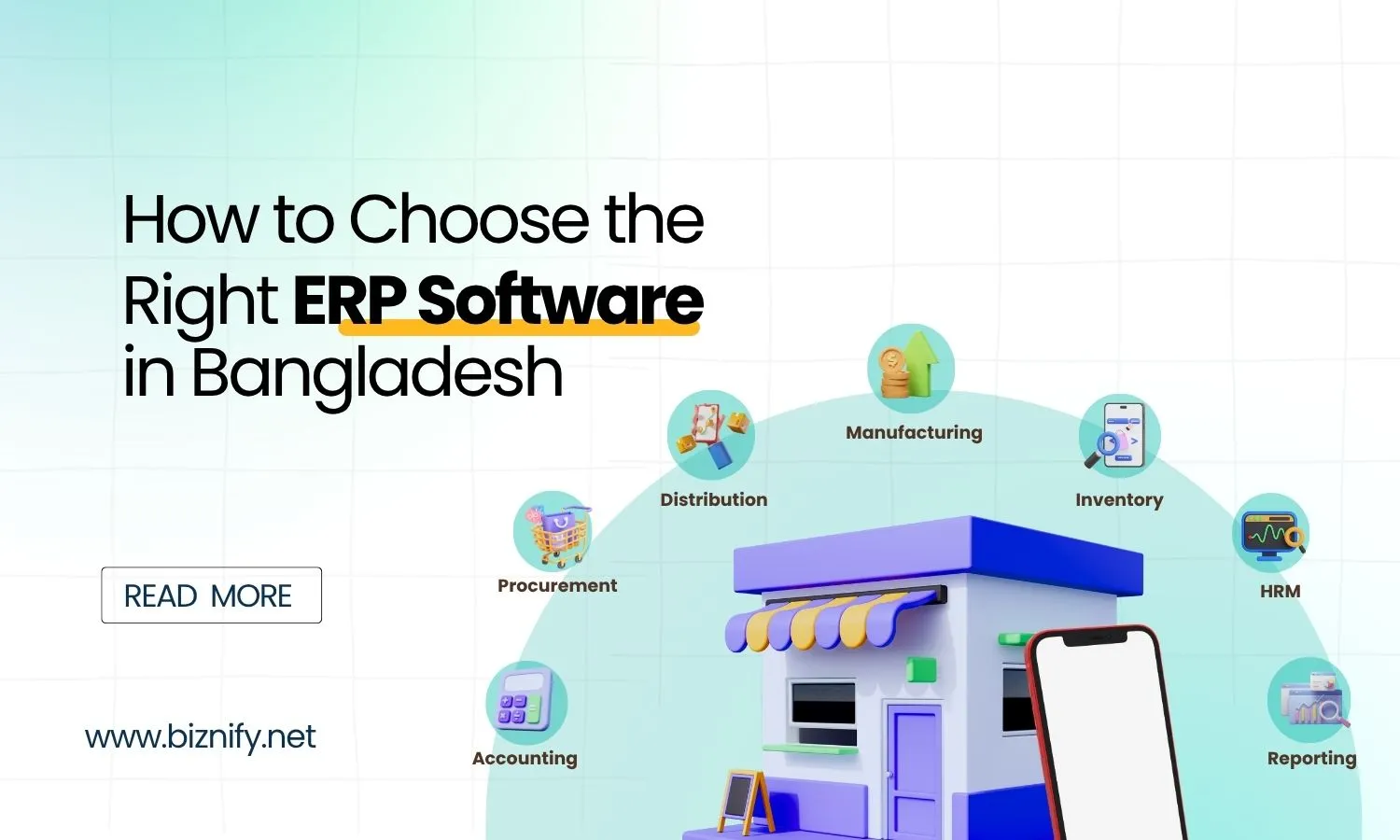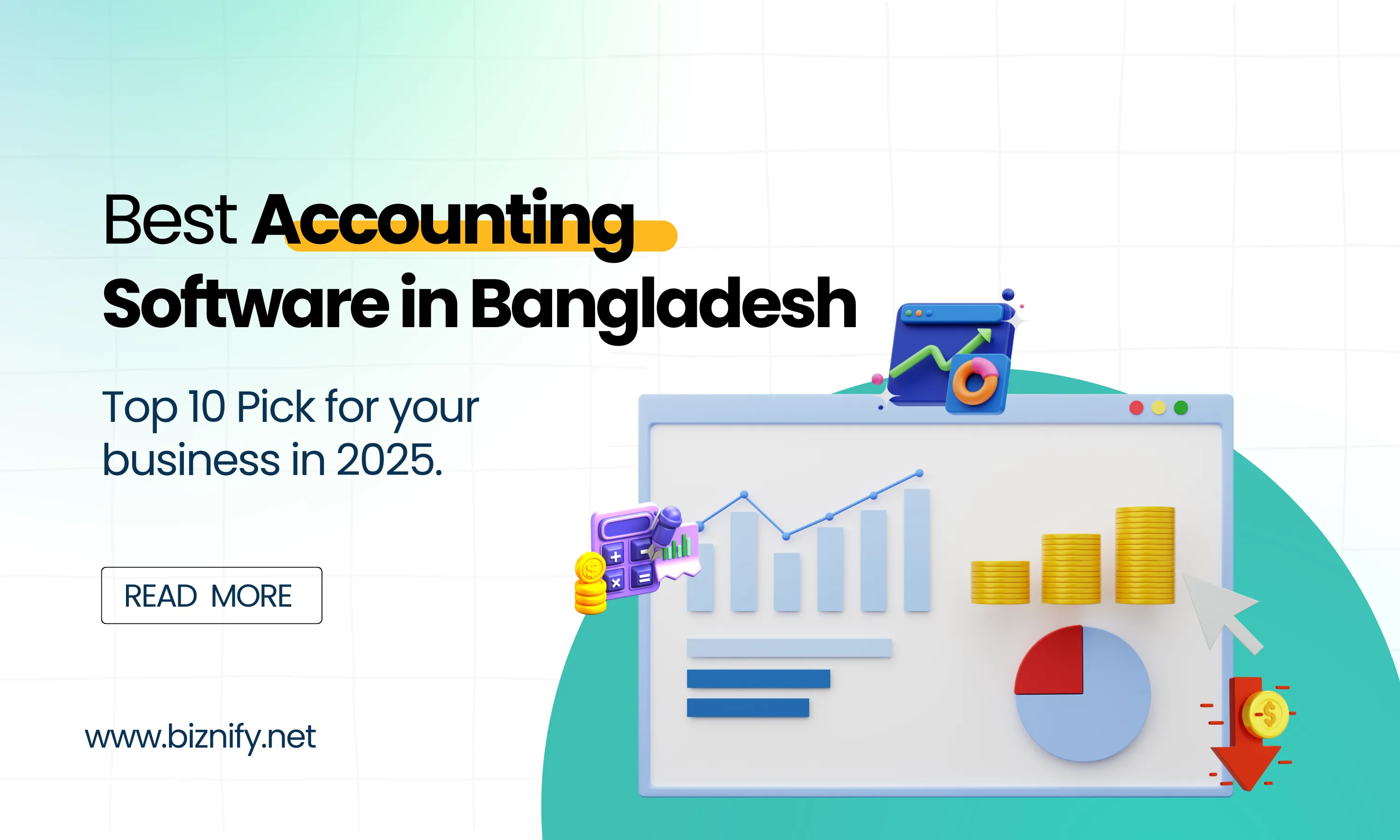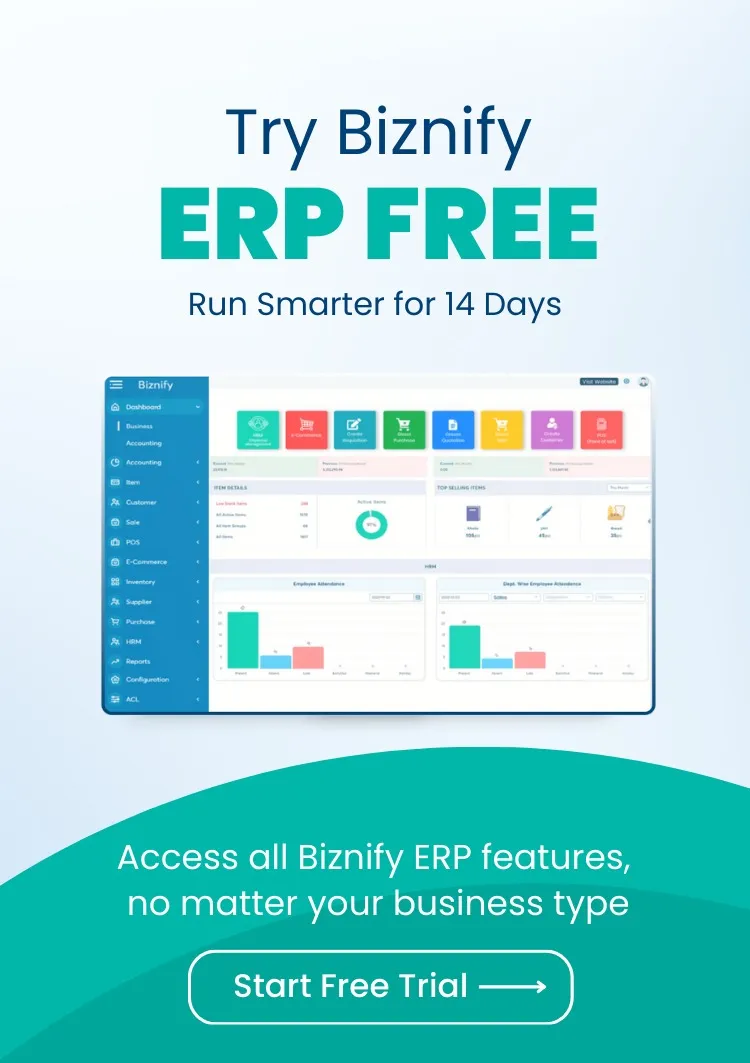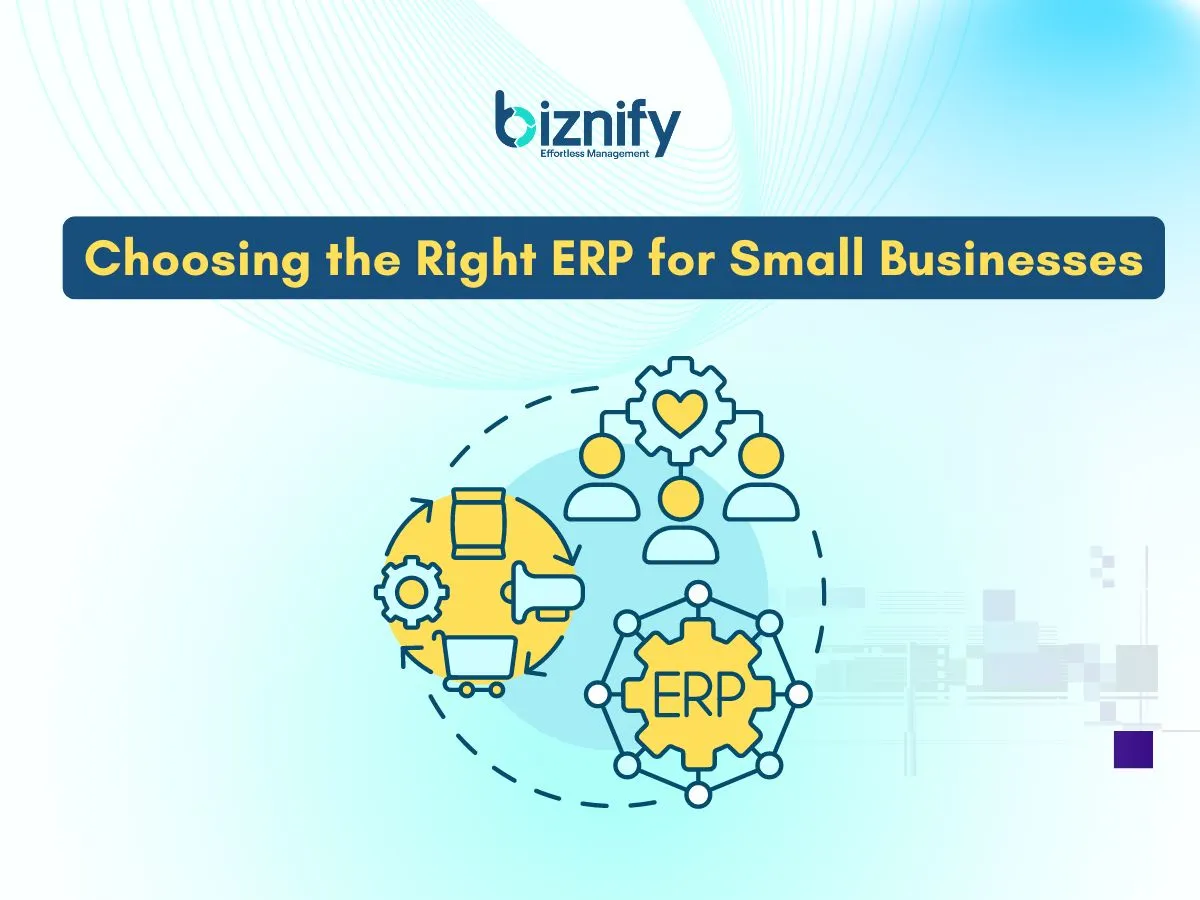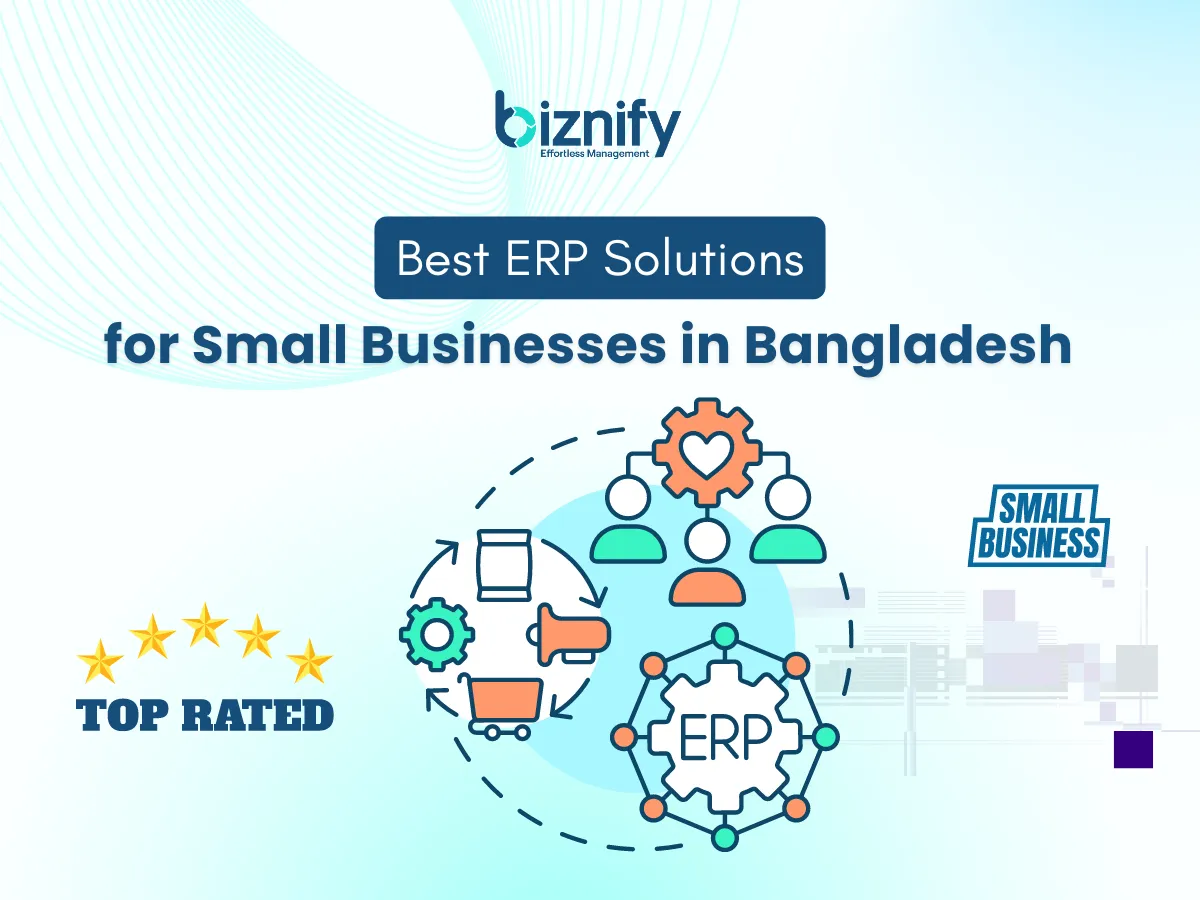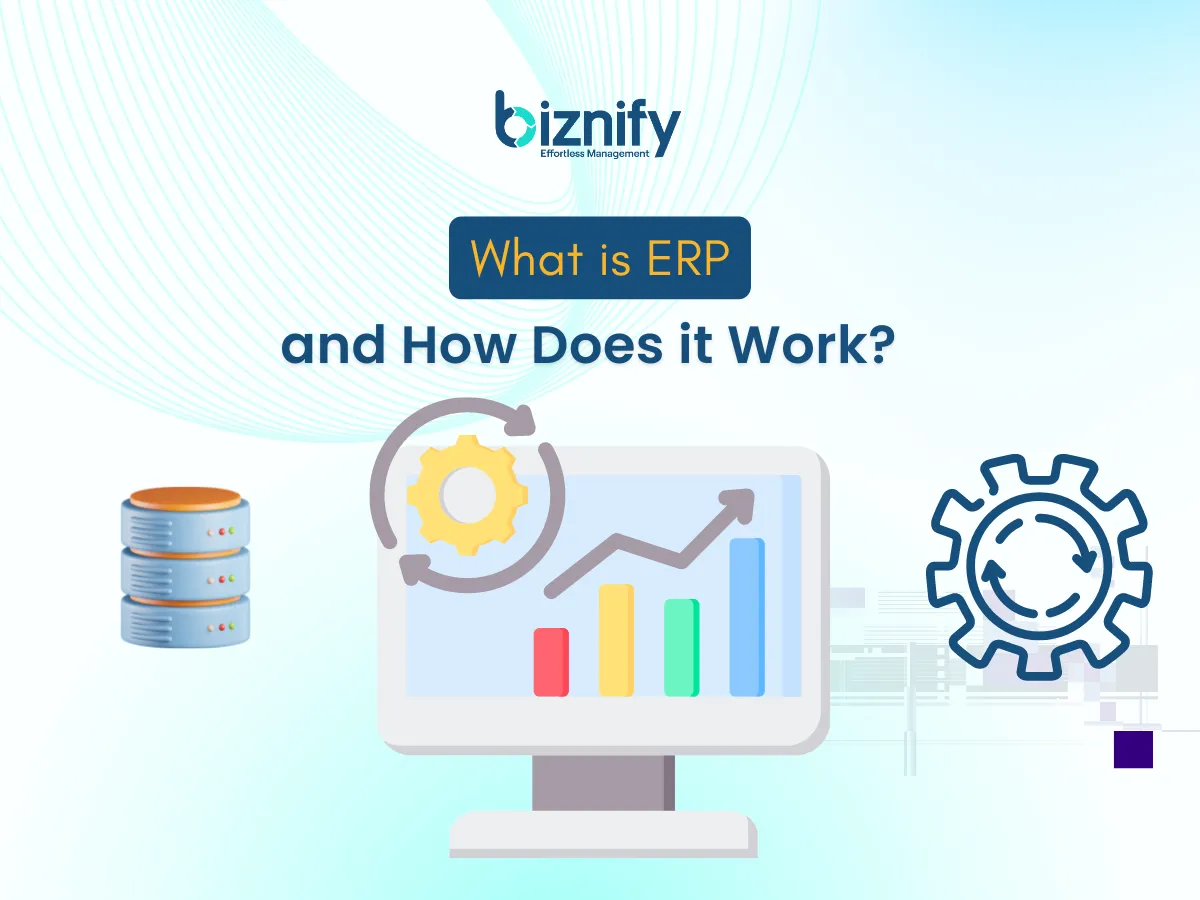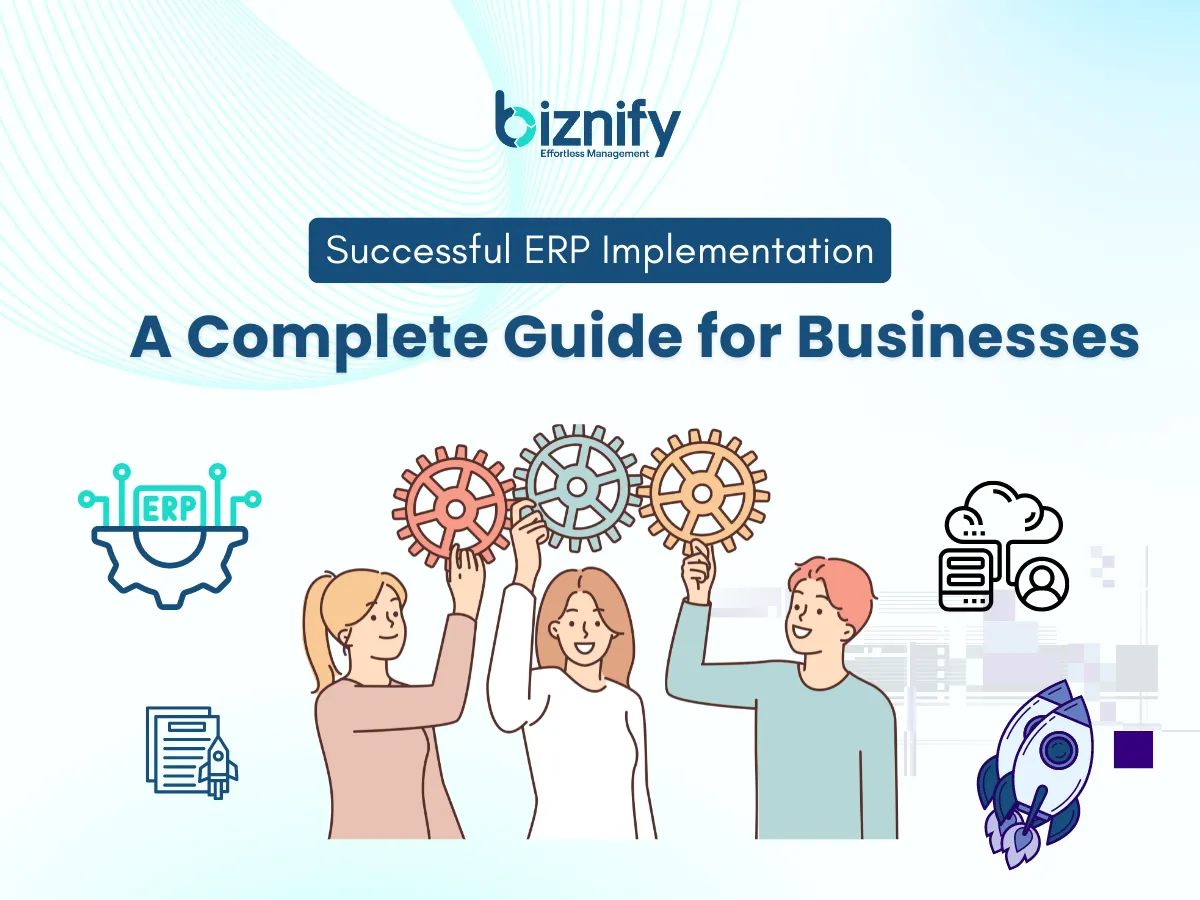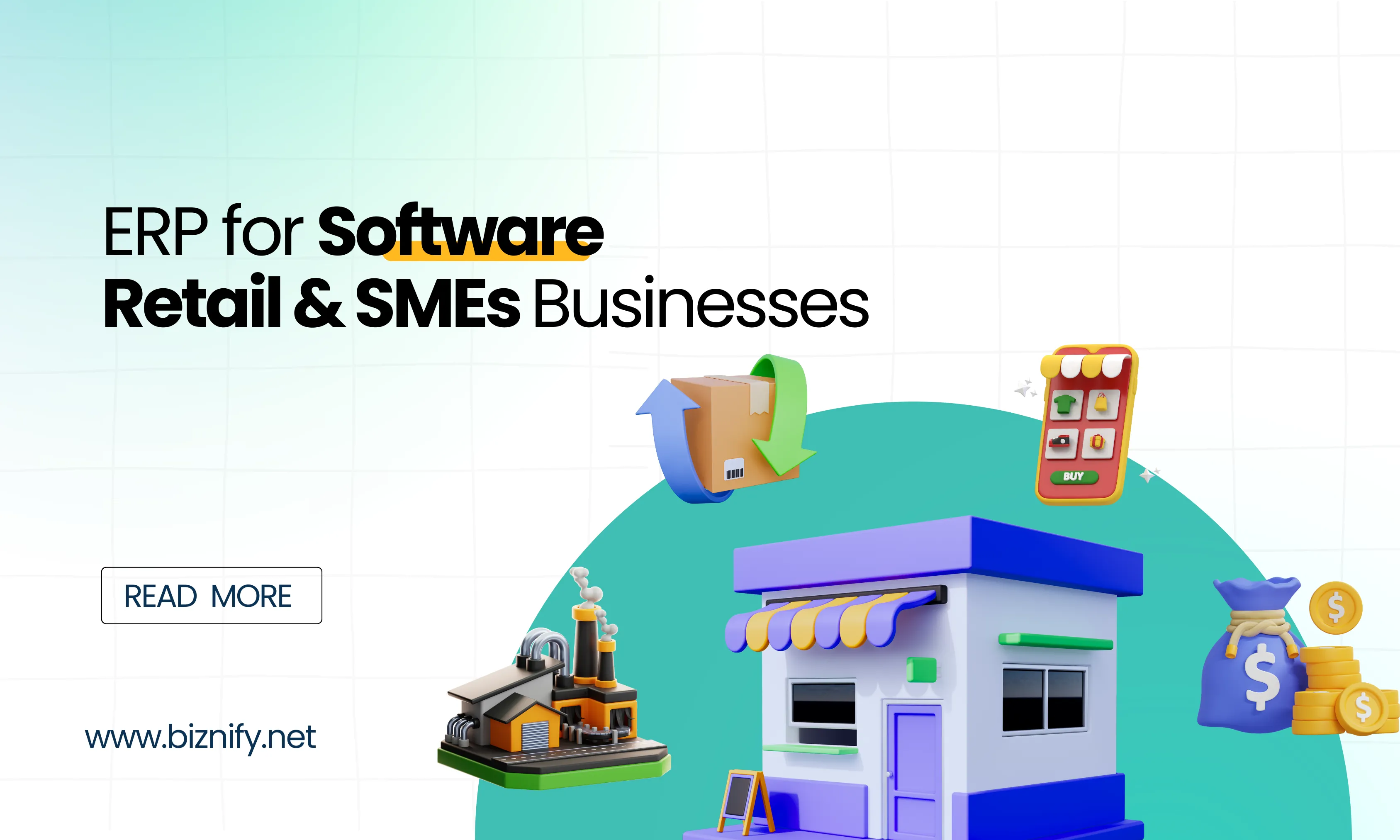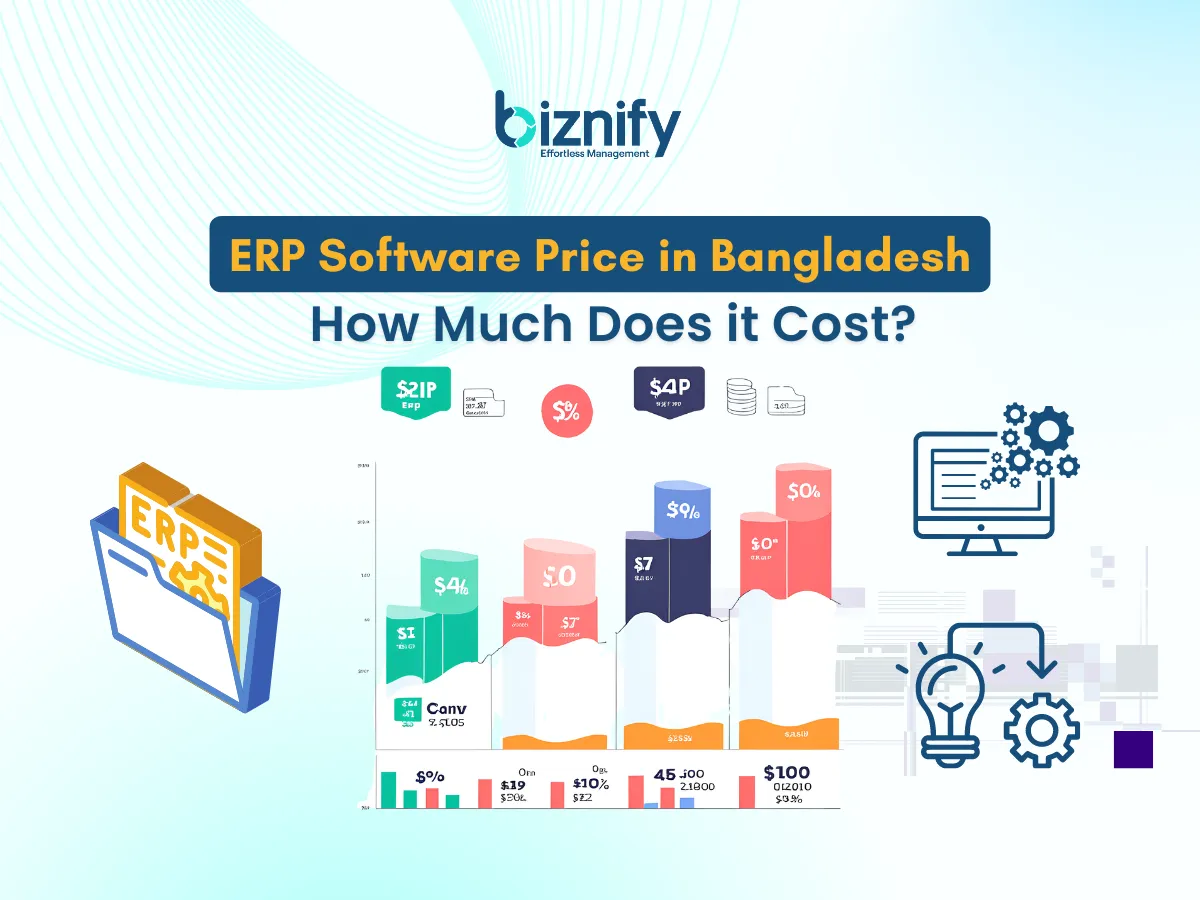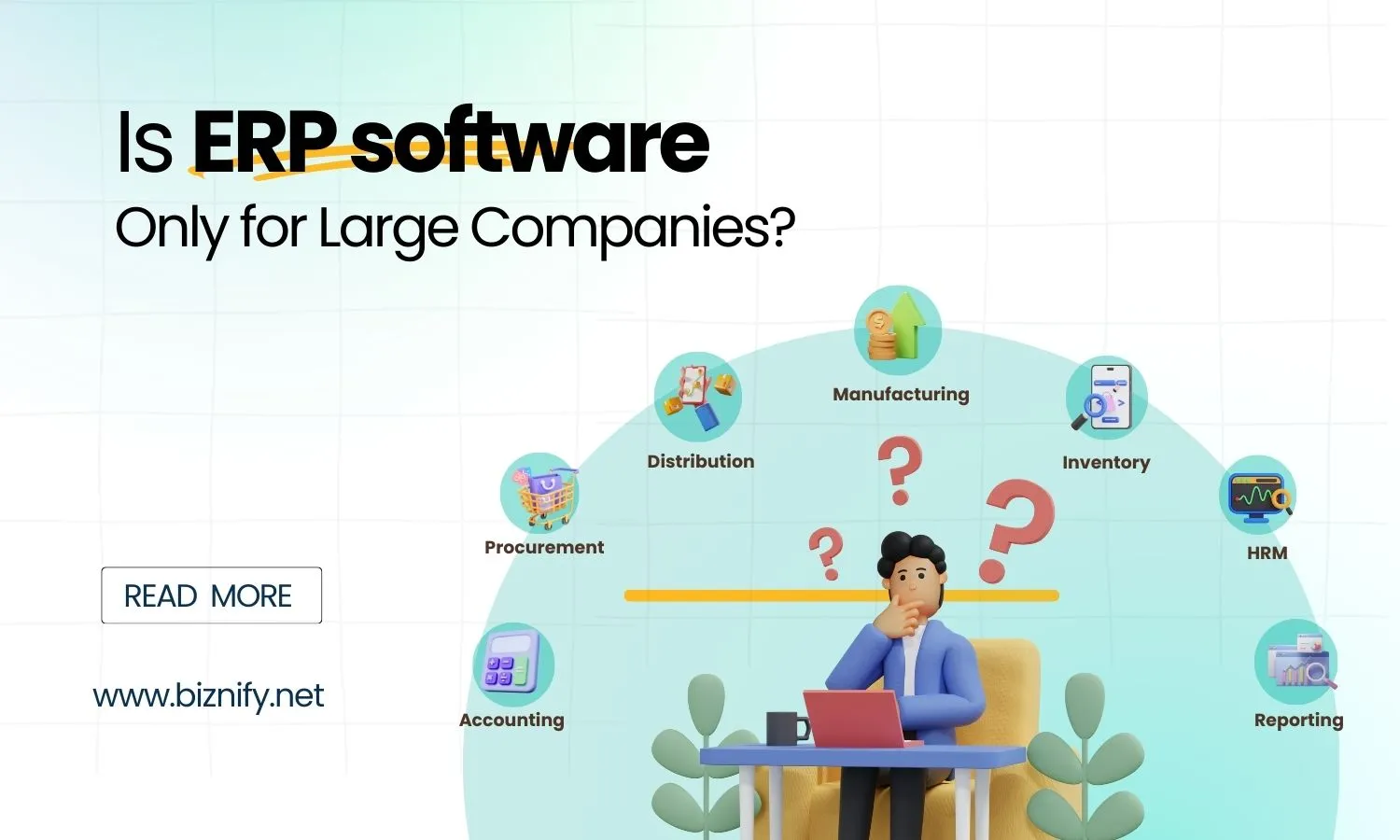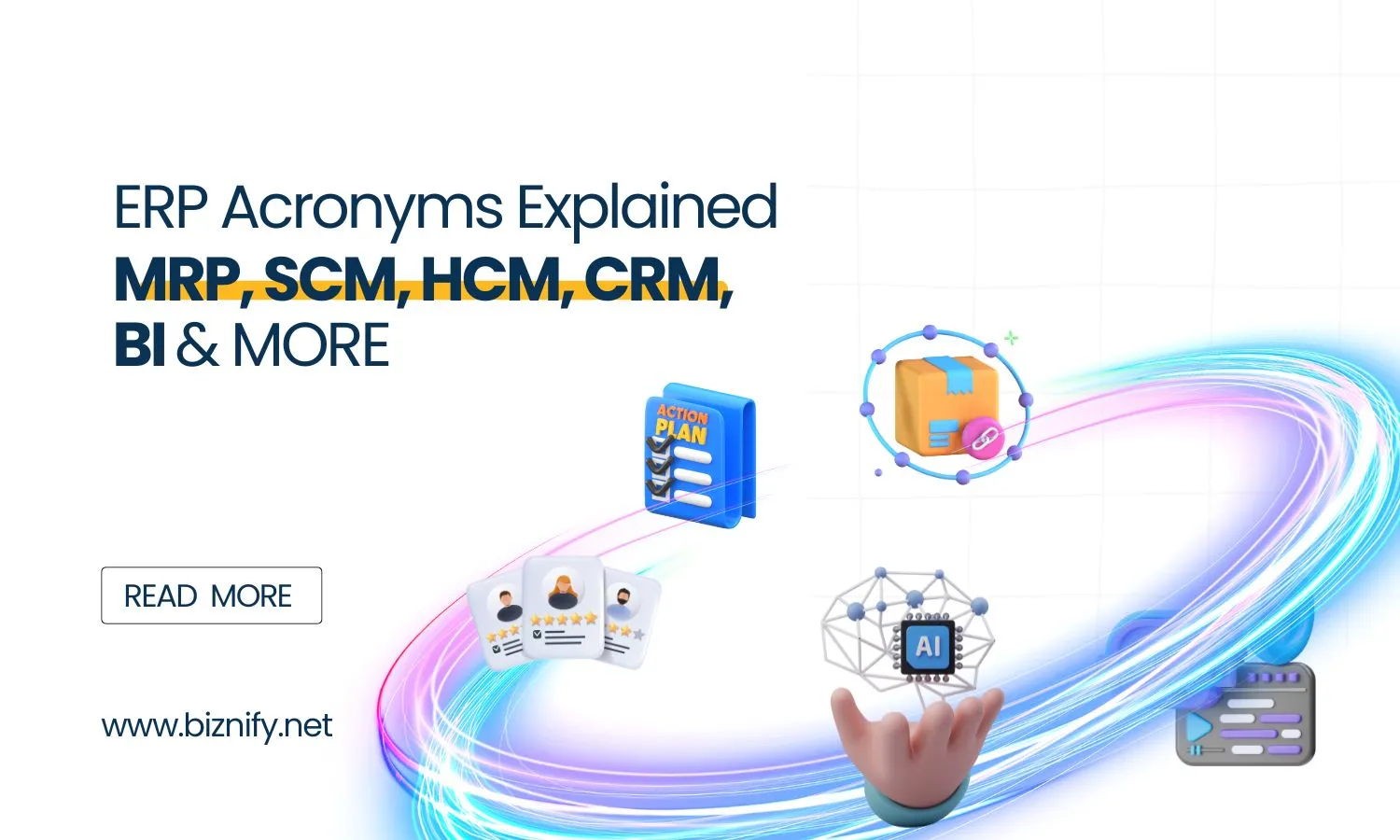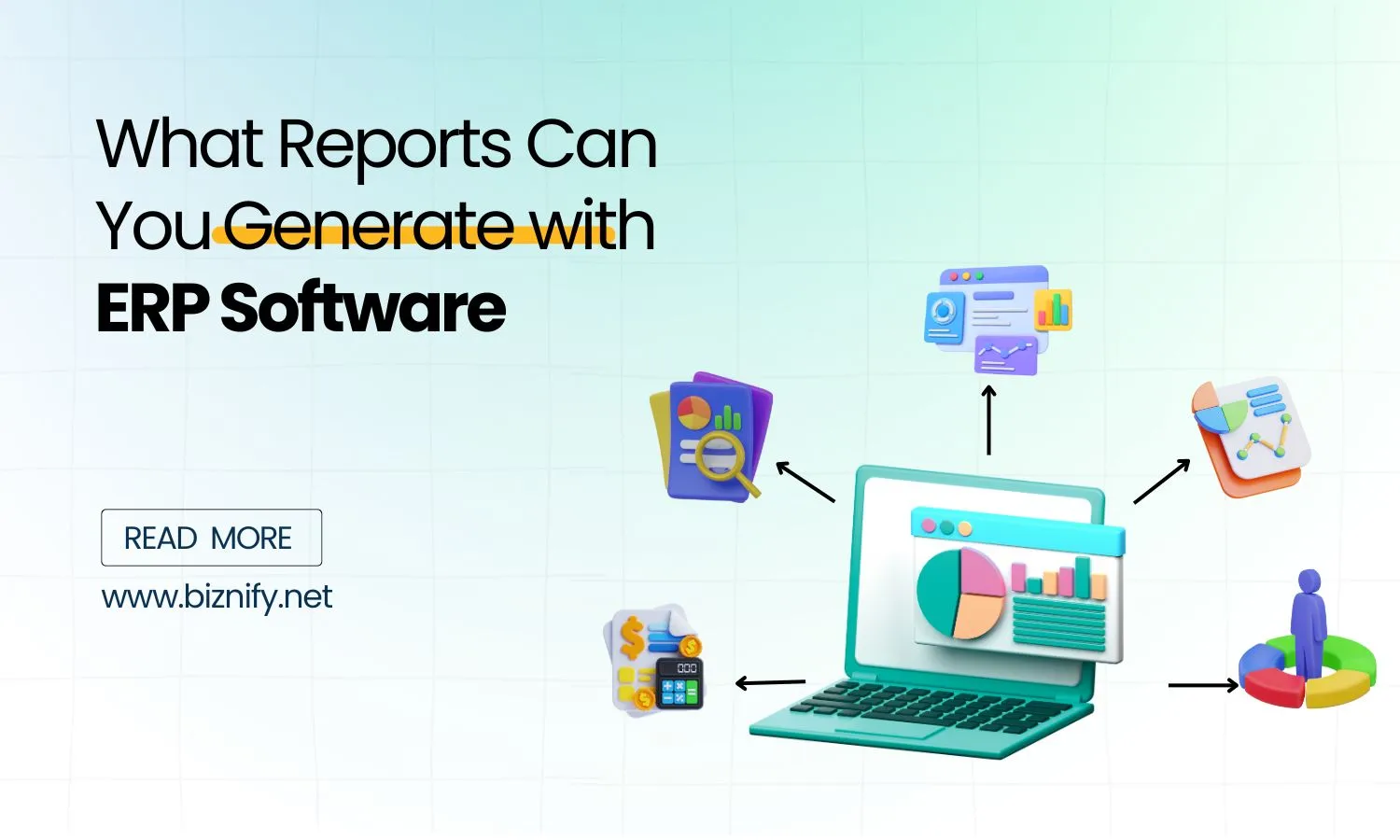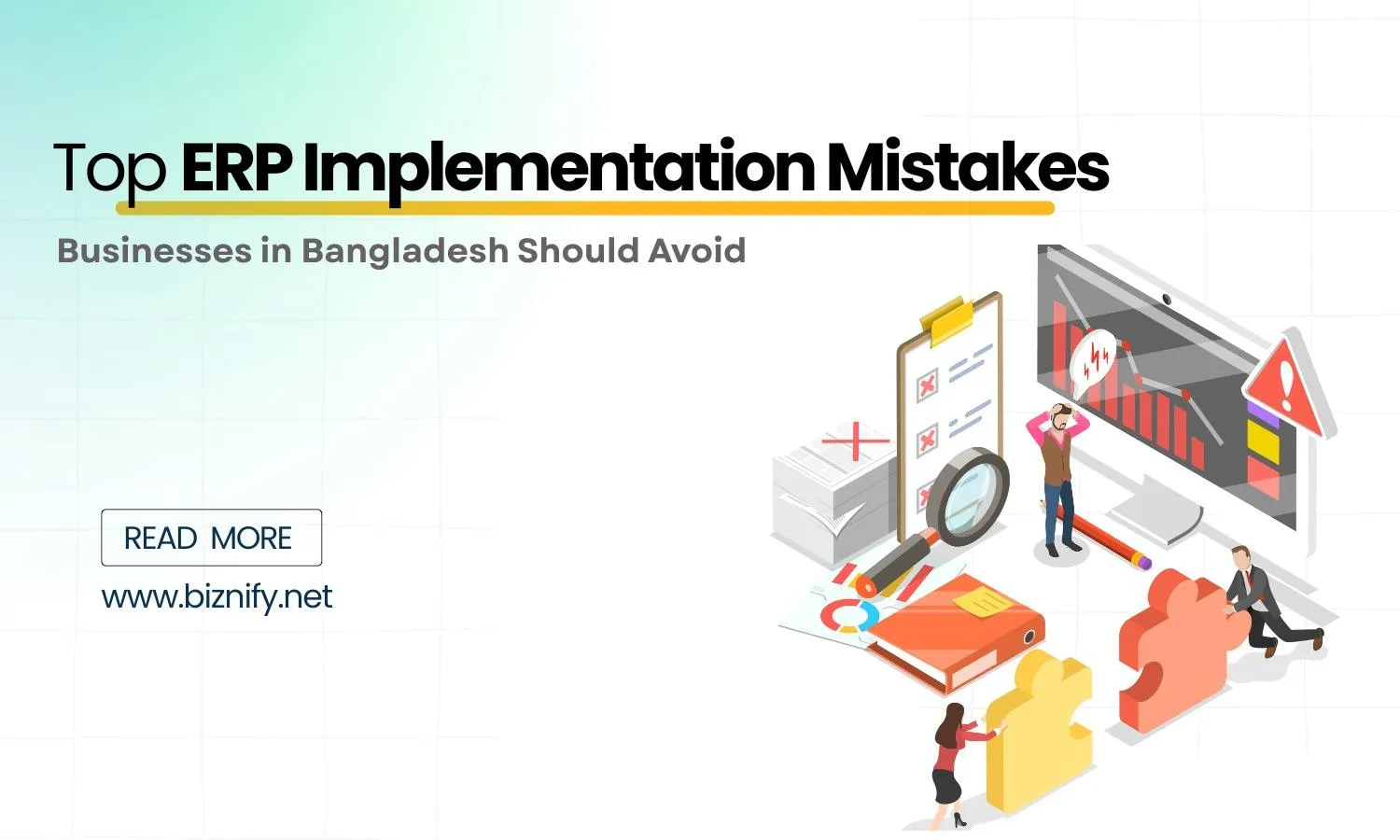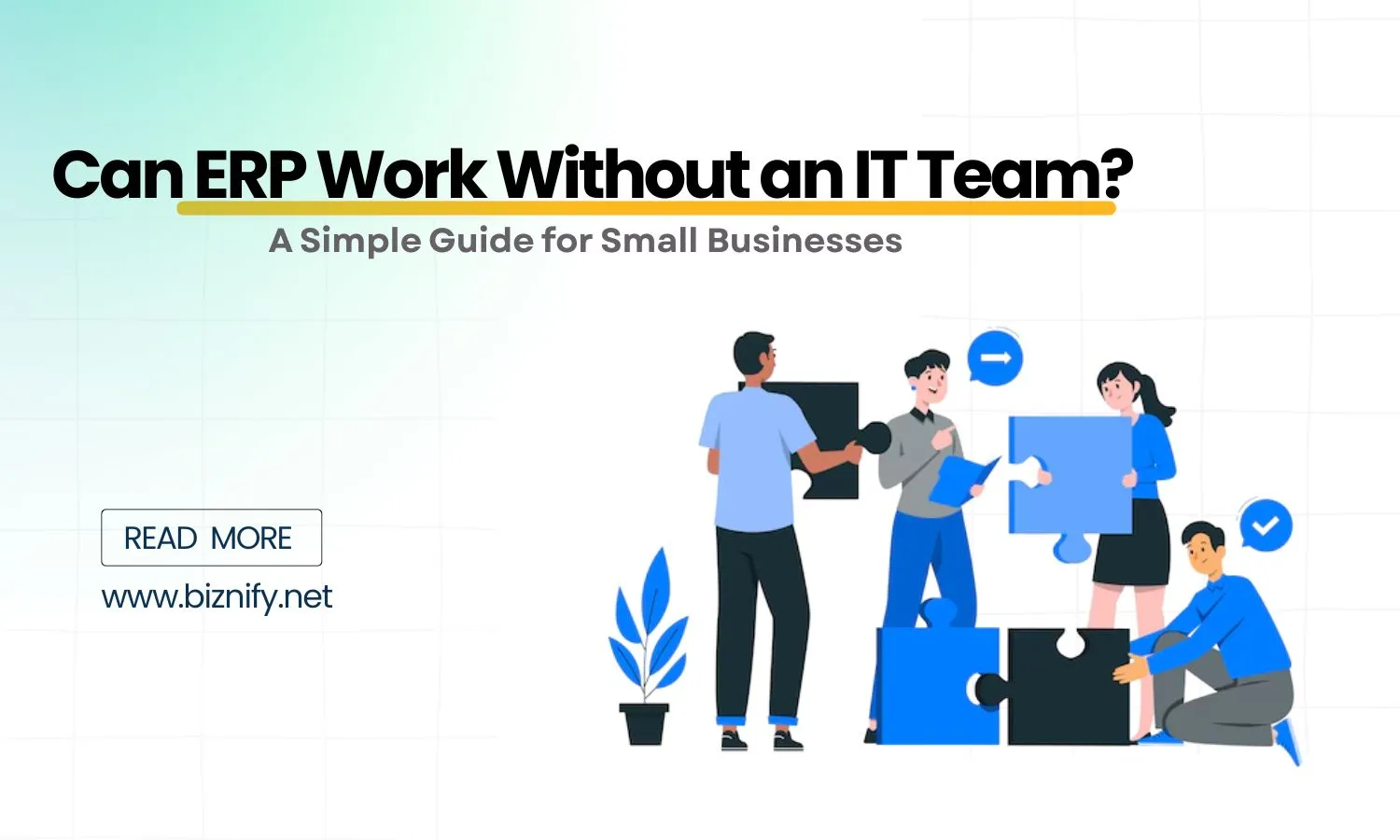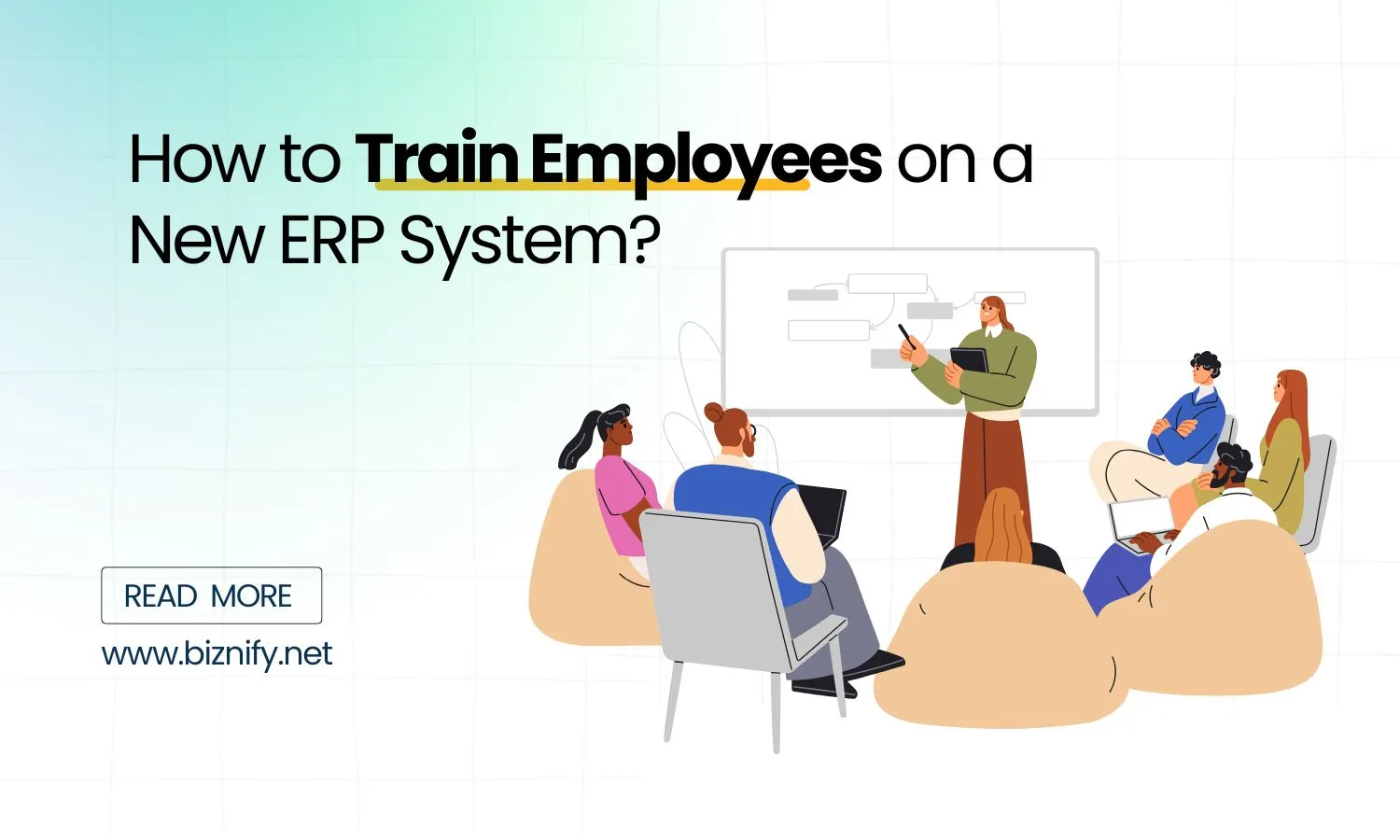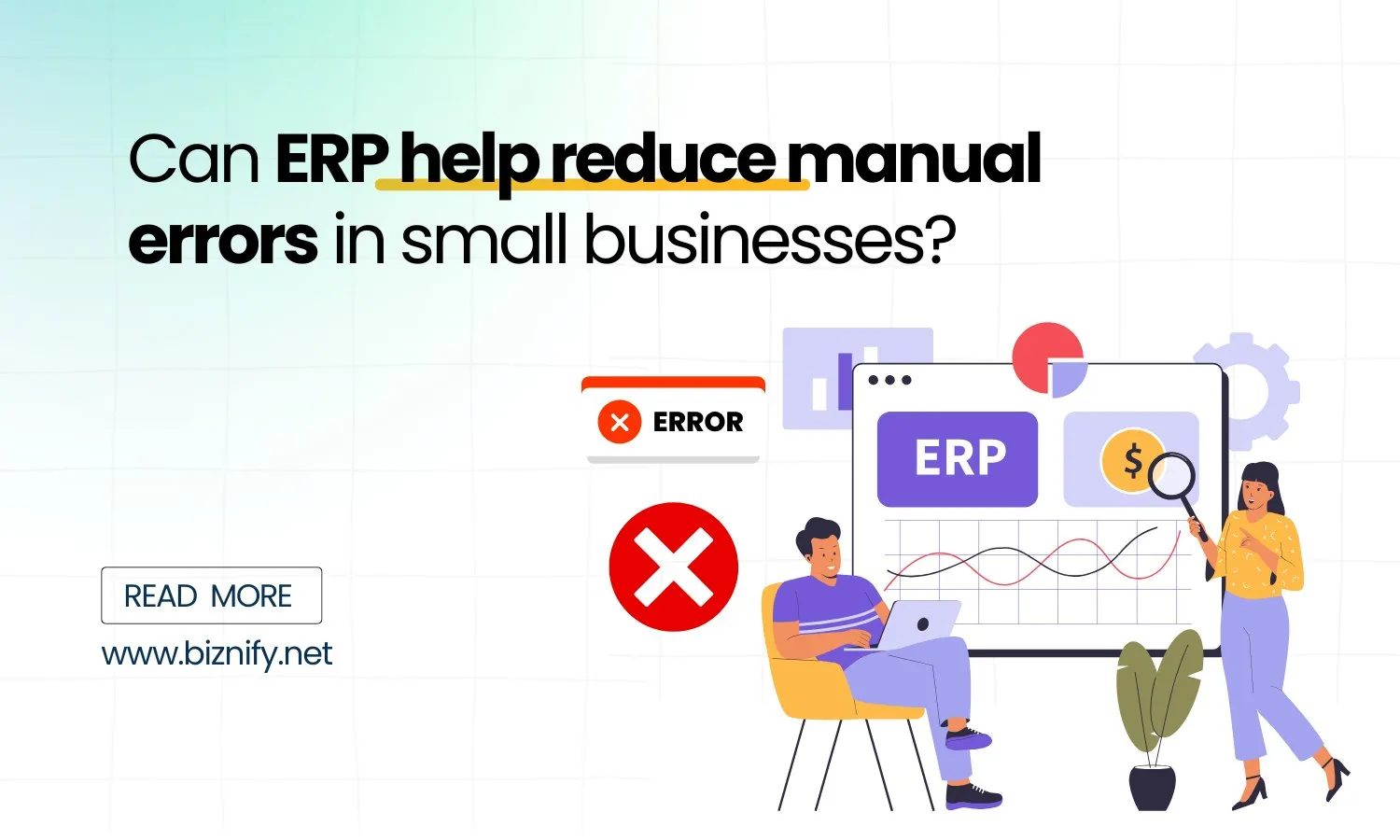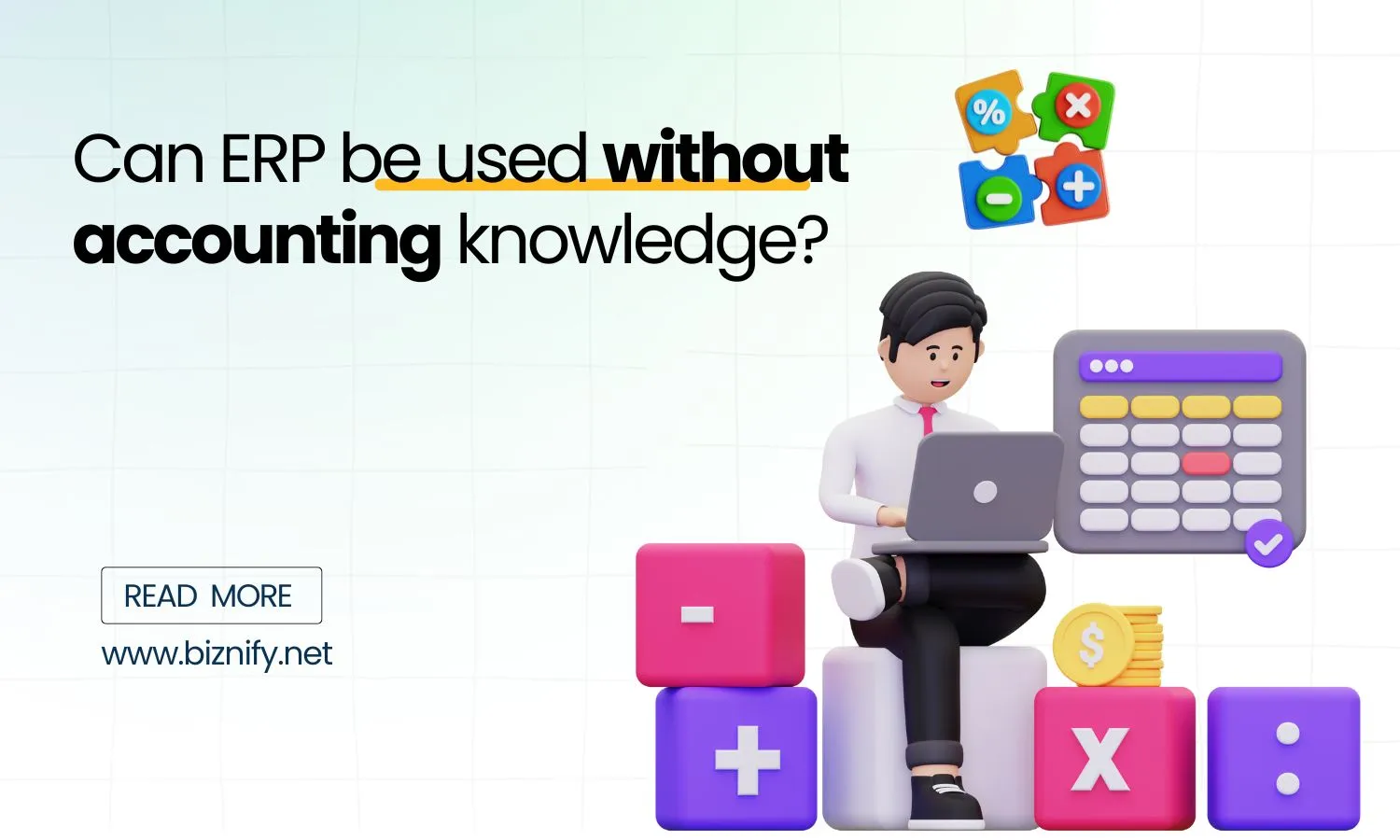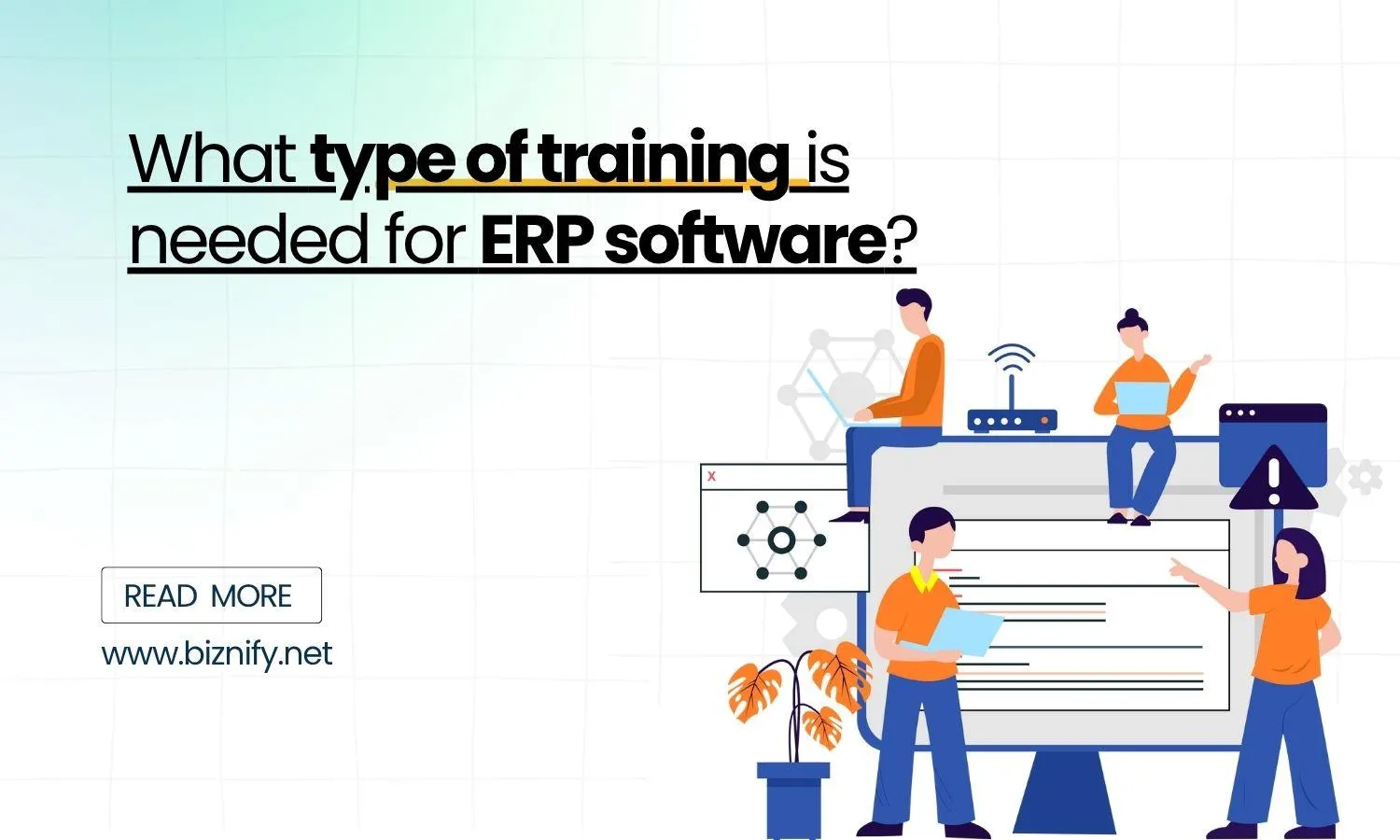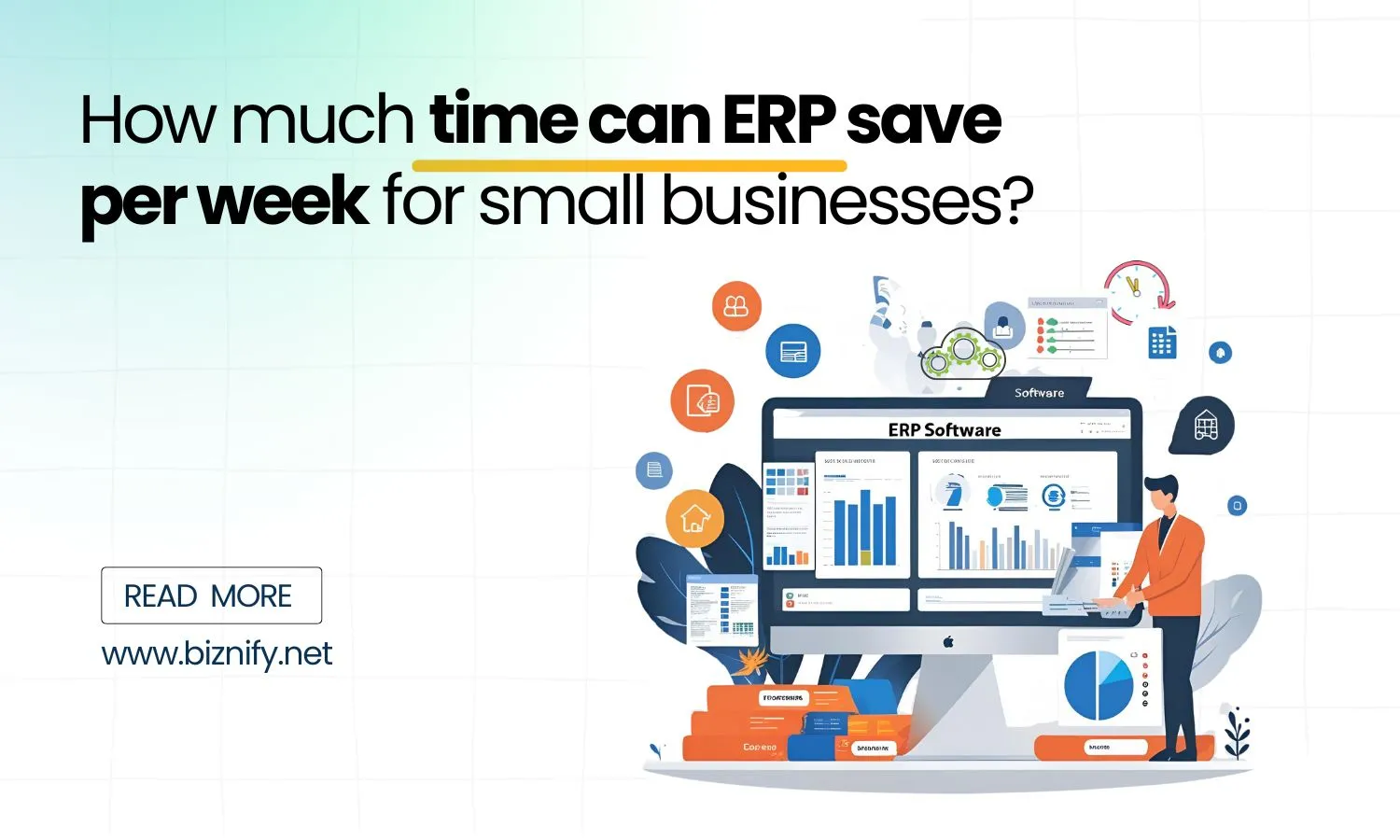Choosing ERP software isn’t just a tech decision — it affects your money, your people, and how your business runs every day.
A bad ERP fit can slow things down. It can lead to extra costs, delays, and even stop your growth. A good one helps you move faster, keep things organized, and avoid chaos when your business expands.
In Bangladesh, more businesses are switching from manual tools and outdated software to proper ERP systems. The shift isn’t just happening in big companies. Small and mid-sized businesses are catching up, too.
Platforms like Biznify are already being used by many businesses to manage everything from accounting to inventory. And the results speak for themselves — faster processes, better tracking, and smoother workflows.
Understand Your Business Needs First
Before looking at features or pricing, stop and ask:
What do you need this software to do?
Every business in Bangladesh runs a bit differently. But most face similar challenges:
-
Tracking income and expenses
-
Managing customer and supplier records
-
Handling stock or inventory
-
Keeping HR and payroll organized
-
Avoiding manual errors
ERP isn’t one-size-fits-all. If you're in retail, your needs aren’t the same as a company in manufacturing or services.
Here’s a quick checklist to help you figure out what to focus on:
Questions to ask before choosing ERP:
-
What departments will use it?
-
What tasks take the most time today?
-
Do we need local language or VAT support?
-
Do we already use software for any of this?
-
Can this ERP grow with us in the next 3–5 years?
Getting clarity here makes the rest easier.
Key Factors to Evaluate When Choosing ERP Software
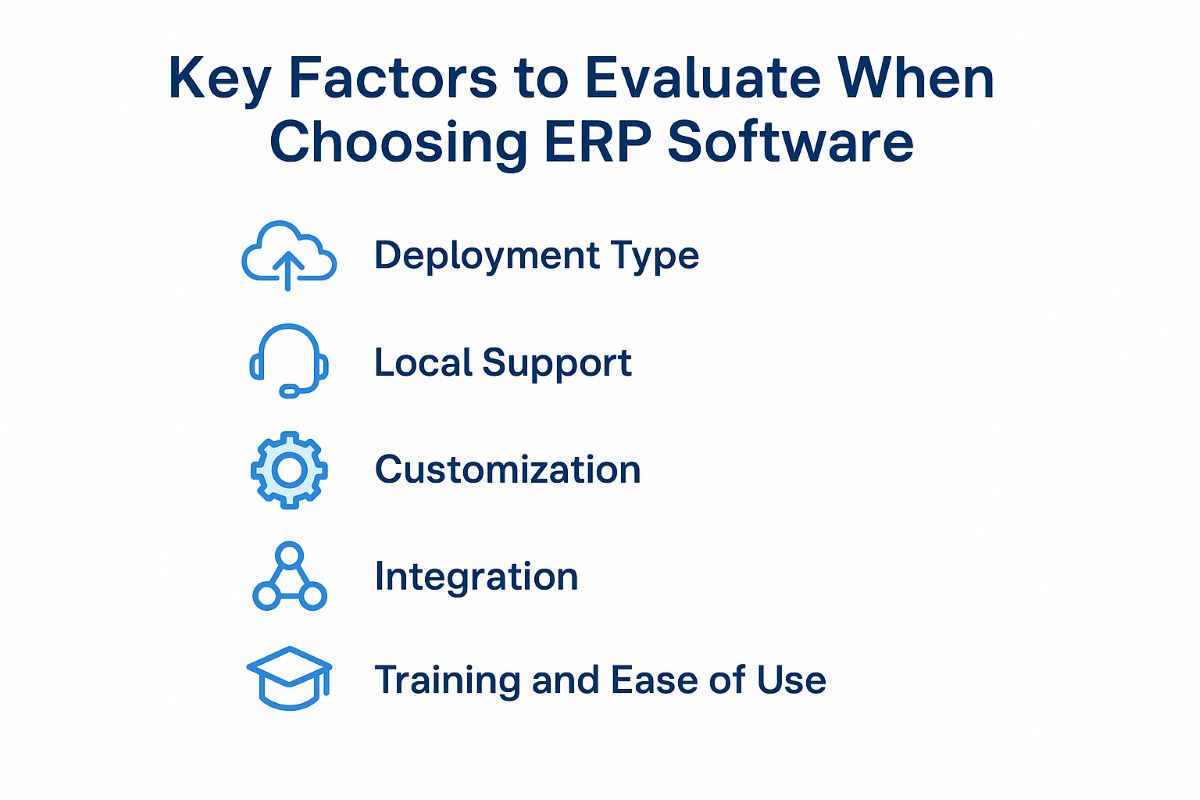
Once you know what your business needs, start looking at the ERP systems available. Don’t just go by brand. Go by what actually fits. Here are the key points to check:
1. Deployment Type
Do you want it on the cloud or installed on your own server?
Cloud is easier to maintain. On-premise gives more control. Think about your internet reliability, IT team, and data preferences.
2. Local Support
Who will help you if something breaks?
Make sure the vendor offers fast support, understands your market, and speaks your language.
3. Customization
Can the software match how you run things?
You might need a tweak in invoicing, stock alerts, or tax settings. Good ERP systems allow that.
4. Integration
Will it work with what you already use?
If you use Excel, POS software, or a separate HR tool, see if it connects. The less switching between apps, the better.
5. Training and Ease of Use
Can your team actually use it without needing a full-time tech expert?
Local vs Global ERP Vendors: Why Local Context Wins
There are two types of ERP vendors in the market: global names and local providers. Both have their place. But if you’re running a business in Bangladesh — especially an SME — local often makes more sense.
Here’s why local ERP vendors matter:
1. Local Rules, Local Compliance
Bangladeshi businesses deal with VAT, tax rules, payroll laws, and government filings that many global ERPs don’t handle out of the box. Local systems are built with these in mind. You don’t need to hire extra consultants just to make the system work for you.
2. Faster Support
When something goes wrong, you don’t want to wait for a support team in another time zone. Local ERP companies often provide direct support, in your language, during your hours. That saves time and avoids frustration.
3. Better Fit for Local Companys
Many international ERP platforms were built for large enterprises with big IT budgets. Local providers like Biznify focus on what small and growing businesses need — clean interfaces, quick onboarding, and smart automation without complexity.
4. Cost Control
Global ERPs often come with heavy licensing fees, hidden add-ons, or long contracts. With local ERP systems, pricing tends to be clearer. It’s easier to start small and upgrade when your business grows.
5. Local Implementation Partners
Setup isn’t just about installing software. It’s about getting it right for your team. Local vendors usually work with nearby consultants who understand how Bangladeshi businesses operate — and can train your team properly.
Features That Matter Most for Businesses in Bangladesh
Every ERP platform comes with a long feature list. But not everything on that list matters to your business. Focus on the tools that solve problems you're facing today — and the ones you'll likely face tomorrow.
For most businesses in Bangladesh, these features should be a priority:
Accounting
Track income, expenses, invoices, and cash flow. Look for built-in VAT features to avoid extra headaches during tax time.
Inventory Management
Know what’s in stock, what’s running low, and what’s moving slowly. A good ERP shows this in real time.
Sales and CRM
Manage leads, customers, and orders in one place. Helps teams follow up faster and sell better.
Human Resource & Payroll
Keep employee records, calculate salaries, and manage attendance. Bonus if it handles government compliance, too.
Dashboards and Reports
You shouldn’t have to dig through spreadsheets to know how the business is doing. Your ERP should give you clear reports without the need for Excel formulas.
Mobile Access
Can you check stock or approve a payment while you’re out of the office? That flexibility matters.
User Roles and Permissions
Not everyone needs to see everything. A solid ERP lets you control who can do what — easily.
Many of these features are part of solutions like Biznify, which are built with growing businesses in mind. You don’t need to use every module from day one. Start small, and add more as needed.
Red Flags to Avoid While Choosing ERP
Not all ERP systems are built well. Some are hard to use. Others look good in a demo but fall apart during daily use. Here are a few warning signs to watch out for:
Too Much Complexity
If it feels like you need an IT degree to add a new user or change a form, that’s a red flag. Software should make work easier, not harder.
No Local Support or Presence
A team that works overseas may not understand how your business operates. If the support is slow, your work suffers.
No Clear Roadmap or Updates
Is the ERP updated regularly? Does the vendor have a plan for improving the product? Outdated software quickly becomes a problem.
Too Rigid
If the ERP can’t be adjusted to match your process, even slightly, it will create friction for your team.
Hidden Costs
Some systems look cheap upfront but charge for every extra user, report, or integration. Always ask about total costs.
Unclear Data Ownership
Where is your data stored? Can you export it if you ever switch providers? Make sure you have full control.
A smart move is to test a live demo and ask real questions. Some platforms, including Biznify, let you try before committing. That’s the best way to find issues before they become problems.
What ERP Selection Looks Like in a Typical Bangladeshi Businesses
Most Businesses owners don’t start by saying, “I need an ERP.”
They start with a spreadsheet that’s grown too messy. A sales team that forgets follow-ups. Or a store manager calling at night because they ran out of stock again.
That’s usually where the search begins — not with features or dashboards, but with problems.
Then comes the confusion.
Someone recommends software from abroad. Another friend mentions a local option. One looks too complex. One looks too basic. A third seems perfect — until the price shows up.
This is where most businesses stall. They know they need to fix things. But it’s hard to choose something without knowing if it will actually fit.
What usually helps is breaking it down:
-
What do we do every day that wastes time?
-
What mistakes keep repeating?
-
What happens when one person’s on leave?
-
What are we still tracking on paper?
When these questions are answered honestly, the right features — and the right kind of software — become clearer.
For a lot of busienesses in Bangladesh, the right system is one that covers the basics: accounting, inventory, sales, HR. Something simple, flexible, and supported by a team that understands the local way of doing things.
That’s where platforms like Biznify often come into the picture — not as a flashy tool, but as a practical fit. See why Biznify is trusted as one of the best ERP software solutions in Bangladesh for growing businesses that need flexibility, simplicity, and local support.
The best part? Once the right system is in place, businesses often wonder why they didn’t switch earlier.
Questions to Ask ERP Vendors Before You Buy
Choosing ERP software isn’t just about checking features. It’s about knowing who you’re buying from, how the system fits your team, and what to expect after you sign the deal.
Here’s a list of questions every business should ask before making a decision:
About the Software
-
Does it include modules for accounting, inventory, sales, and HR?
-
Can we use only the modules we need?
-
Is it cloud-based, or does it require local installation?
-
Can it be accessed from mobile devices?
About Usability
-
How long does it take to train our team?
-
Is the interface simple enough for non-technical users?
-
Are there user permissions or access controls?
About Support & Service
-
Do you offer local support in Bangladesh?
-
How quickly do you respond to support requests?
-
Is support included in the price or charged separately?
About Customization & Flexibility
-
Can we adjust invoice formats, taxes, or workflows?
-
What happens if we need something custom?
About Cost
-
Is there a one-time fee, a monthly subscription, or both?
-
Are there extra costs for adding users or features later?
-
What’s included in the base price?
About Data
About Growth
You don’t need to ask every question in one meeting. But don’t skip the important ones either. A solid ERP provider will answer clearly and show you how their system works in real-world scenarios.
If you’re comparing vendors, make a simple checklist or scorecard. List what you need, and tick off what each provider offers. That way, the decision becomes less about guessing and more about what’s right for your business.
Some companies, like Biznify, even offer guided demos and checklists to help make that process easier.
“When choosing ERP software in Bangladesh, focus on how well the system fits your day-to-day needs. Start by listing your most time-consuming tasks across departments like sales, accounting, inventory, and HR. Then look for ERP platforms that offer local support, simple interfaces, and only the modules you actually need. A good ERP should solve problems without making your work harder.”
Frequently Asked Questions
1. What should I look for when choosing ERP software in Bangladesh?
Look for ERP software that matches your day-to-day needs, offers local VAT compliance, supports Bangla if needed, and provides strong after-sales support from local vendors.
2. Is cloud ERP better for small businesses in Bangladesh?
Yes, cloud ERP is ideal for most SMEs due to lower upfront costs, easier updates, and anytime-anywhere access. On-premise is better for companies with strict compliance or data control needs.
3. How much does ERP software cost in Bangladesh?
ERP pricing typically ranges from ৳1,000/month to ৳10,000/month, depending on features, number of users, and whether you choose cloud or on-premise deployment.
4. Why is local ERP support important?
Local ERP vendors understand Bangladesh’s business needs, VAT structure, and language requirements. Support is also faster and more aligned with local compliance updates.
5. Can ERP software be customized for my business?
Yes, most ERP solutions like Biznify allow you to choose and modify modules to match your workflows. This ensures you're only paying for what you need.
6. How long does ERP implementation take?
ERP implementation can take 2 to 8 weeks depending on the business size and modules. Cloud-based ERPs like Biznify usually have quicker rollout times.
7. Can ERP software handle both inventory and accounting?
Yes. Full ERP solutions integrate inventory, accounting, HR, sales, and operations into one platform — ideal for smoother data flow and real-time visibility.
Final Thoughts: Choose What Fits, Not What Looks Fancy
There’s no “best” ERP for everyone. The right choice is the one that fits how you work, helps your team do their jobs better, and doesn’t slow you down.
If you’re a growing business in Bangladesh, your needs aren’t the same as a company overseas, and your ERP shouldn’t be either. Local support, local pricing, and local features matter.
Don’t get distracted by long feature lists or flashy dashboards. Focus on what your team needs today — and what you’ll likely need a year from now.
Try a demo. Ask the hard questions. Take your time.
And when you're ready, look at platforms like Biznify that were built for businesses like yours. Simple to get started. Easy to grow into.

